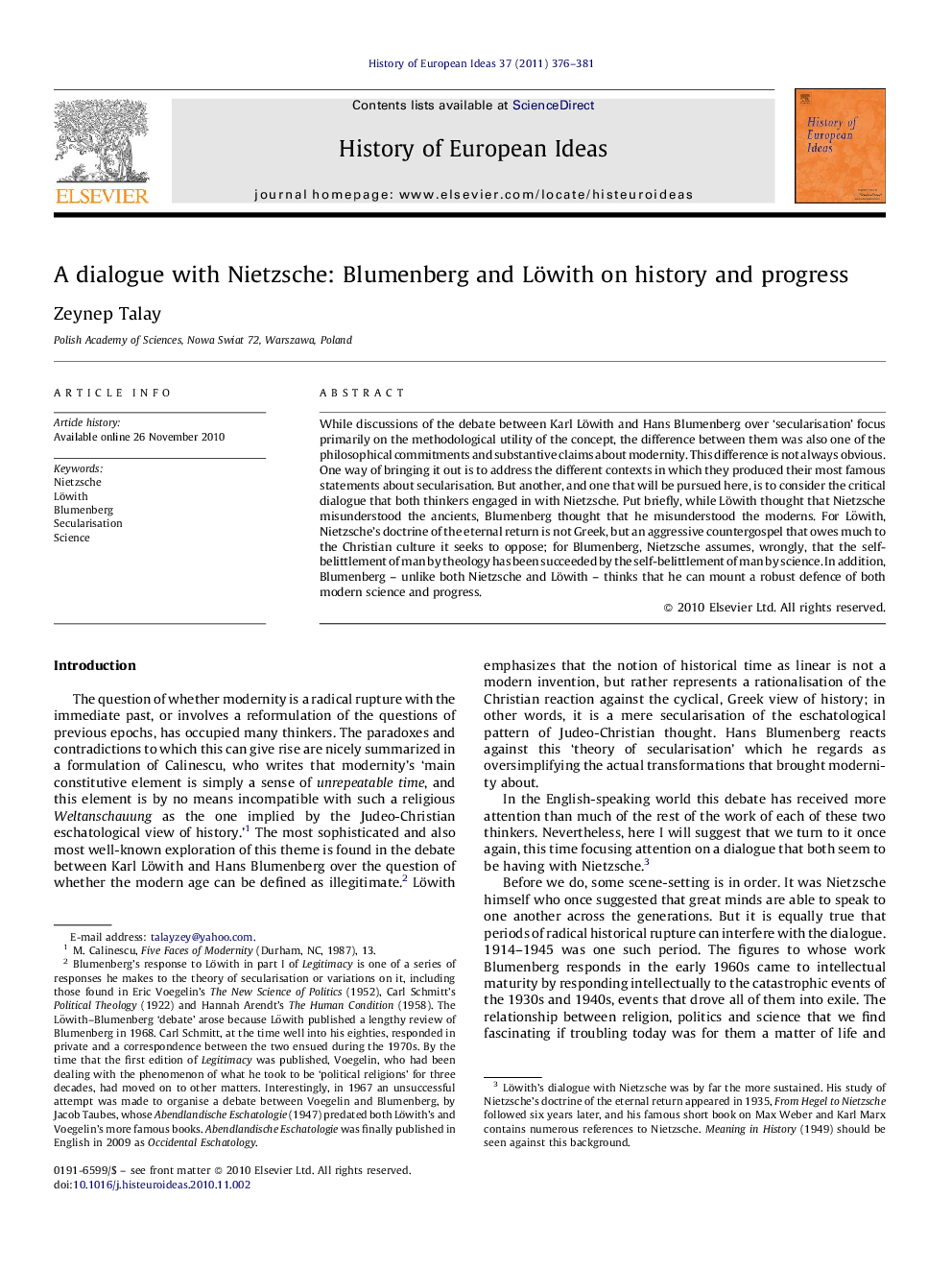| Article ID | Journal | Published Year | Pages | File Type |
|---|---|---|---|---|
| 1158973 | History of European Ideas | 2011 | 6 Pages |
Abstract
While discussions of the debate between Karl Löwith and Hans Blumenberg over 'secularisation' focus primarily on the methodological utility of the concept, the difference between them was also one of the philosophical commitments and substantive claims about modernity. This difference is not always obvious. One way of bringing it out is to address the different contexts in which they produced their most famous statements about secularisation. But another, and one that will be pursued here, is to consider the critical dialogue that both thinkers engaged in with Nietzsche. Put briefly, while Löwith thought that Nietzsche misunderstood the ancients, Blumenberg thought that he misunderstood the moderns. For Löwith, Nietzsche's doctrine of the eternal return is not Greek, but an aggressive countergospel that owes much to the Christian culture it seeks to oppose; for Blumenberg, Nietzsche assumes, wrongly, that the self-belittlement of man by theology has been succeeded by the self-belittlement of man by science. In addition, Blumenberg - unlike both Nietzsche and Löwith - thinks that he can mount a robust defence of both modern science and progress.
Related Topics
Social Sciences and Humanities
Arts and Humanities
History
Authors
Zeynep Talay,
